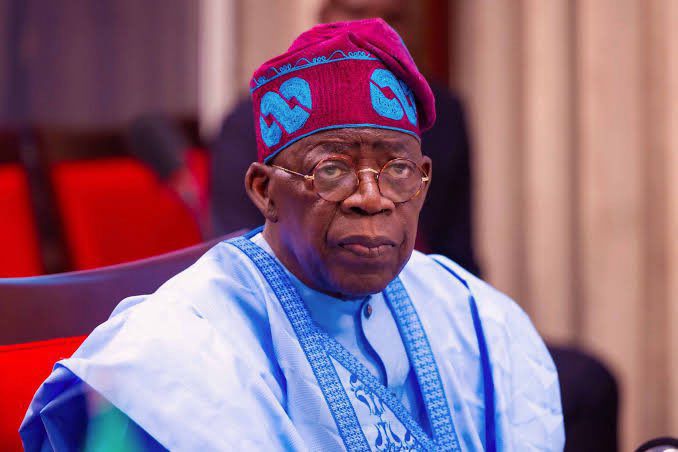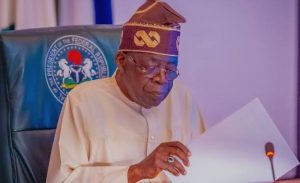Nigeria’s 2021 Budget Breakdown

Minister of Finance, Dr. Zainab Ahmed Presents 2021 Budget Breakdown
By Joseph Ibekwe
https://anchor.fm/future-world-live/episodes/Presentation-of-Nigerias-2021-National-Budget-el00a8
The Federal Government is proposing to spend a total N13.08trilion in the 2021 fiscal year. This was disclosed on Tuesday, October 13, by the Hon. Minister of Finance, Dr. Mrs. Zainab Ahmed, at the presentation of the 2021 Budget breakdown in Abuja.
The Minister informed that out of the proposed experiential, the total expected revenue for Government o put at N7.886 trillion. “The budget deficit of N5.2 trillion will be financed through domestic and external borrowing”, she said. The deficit represents 3.64% of estimated GDP, which is slightly above the 3% threshold set by the Fiscal Responsibility Act 2007. However, the Minister noted that relying on a provision in the Act, which allows for flexibility to go a bit higher, with evidential circumstances.

Titled Budget of Economic Recovery and Resilience, the budget is predicated on crude oil sales of $40 per barrel with daily estimated oil production of 1.86 million barrels. This is inclusive of Condensates of 300,000 to 400,000 barrels per day. The proposed budget is also predicated on N379 per US$ exchange rate; with 35 growth rate and 11.95% inflation rate.
The proposed expenditure profile shows that Capital expenditure is fixed at N3.604trn; Non-debt recurrent expenditure, N5.65trn; Debt Servicing, 3.124trn; Sinking fund, N220bn; and Statutory transfers N484bn. The projected revenue profile indicates that 2.011trn will come from sale oil; 4.386trn from other revenue sources; N1.489trn from non-oil revenue; while the deficit of N5.196trn will be sourced from internal and external borrowing windows.
The top ten capital expenditure allocations for the 2021 budget include N404.64bn to the Federal Ministry of Works and Housing; N382.63bn to the Federal Ministry of Finance, Budget and National Planning; N256.09bn to the Ministry of Transport; N198.28 to Federal Ministry of Power; and N197.41bn to the Federal Ministry of Education. The Federal Ministry of Health will receive a total of N152.77bn; and the same amount goes to the Federal Ministry of Water Resources.
On the recurrent profile, the highest amount of N840.56bn will be spent by the Ministry of Defence to enable it continue the fight against insurgency, while the Federal of Education will spend N545.1bn. The Ministry of Police Affairs will spend a total of 441.39bn, while the Federal Ministry of Health will spend N380.21bn.
Dr. Zainab in her presentation further outlined some key projects to be executive in the 2021 fiscal year. In the Water Resources, the following are the prime projects, Transforming Irrigation in Nigeria Project (TRIMING) which will take a total of N43. 35bn; Rehabilitation and completion of ongoing dam projects nationwide including Itisi, Mongu, Auna-Kotangora, etc at the cost of over N10bn; N1.5bn Partnership for Expanded Water, Sanitation and Hygiene (PEWASH).

On defence, the following key projects are capture in the budget, N22.43bn for the balance payment for procurement of 3 x JF-17 Thunder Aircraft, Support equipment and spares including targeting pads for JF-17 complete with aircraft arms and ammunition. There is N11.45bn procurement of 3x AW109 Helicopters and part payment for procurement of 1x AW139 Helicopter. There is also procurement of 30/32/35 meter hydro survey ship and landing ship tank at the cost of N7.42bn. Other projects in the Defence sector include Completion of the Naval War College Nigeria Complex at the cost of N3.45bn and Upgrade of the Nigerian Navy Reference Hospital in Ojo at the cost of N2.15bn.
In the rail sector, the budget is set to implement a number of projects including N71.15bn counterpart funding for the Lagos-Kano rail line, Calabar-Lagos line, Ajaokuta-Itakpe-Aldja; which all ongoing. The fund will also cover reconstruction of Port Harcourt-Maiguguri, Kano-Katsina-Jibiya-Maradi in Niger Republic, Abuja-Itakape-and Aladja, and Warri Port and Refinery/Warri New Habour.
The housing sector has some projects to be implemented in the proposed budget. These include a N20bn Social Housing Scheme (Family Homes Fund), N17.13bn FGN Nationwide Housing Programme; N2.65bn for the provision of infrastructure and services for Housing Programmes nationwide, as well as N2.14bn Protoype Housing scheme in Niger and Lagos states.
The aviation sector also has some key projects in the budget, including N14bn for the construction of a second run-way at Nnamdi Azikiwe International Airport, Abuja, N5bn for Saftety and security critical projects and airport certification nationwide, N1bn for the construction of new terminal building at the Akanu Ibiam International Airport, Enugu, as well as N1.6bn for the extension and asphalt overlay of MMIA runway, Lagos.

To promote industry and investment, the federal government budgets N5bn for Conditional Grant Scheme, N10bn Special Economic Zones Development, N1.7bn for National Business Skills Development Initiative (NBSDI); N1.69bn for ‘One Local Government One Product’ scheme (OLOP); N1bn for Presidential Enabling Business Environment Council, among others.
Earlier in a welcome at the presentation, the Director General, Budget Office, Mr. Ben Akabueze noted that in the last five years the government has working on budgets that meets the needs of the people. He particularly applauded the ability of the administration to return the budgeting cycle to run from January to December.
He noted that it was for this reason that President Buhari laid the 2020 budget proposal on the floor of the National Assembly on October 8, 2019. The made it possible for the budget to be passed in due time and implementation began on January 1, 2020 after it was signed into law.
In that same vein, Mr. President also presented the 2021 budget proposal to the National Assembly on October 8, 2020. Present at the budget breakdown were also the Minister for Budget and National Planning, Mr. Clem Agbah and the Accountant general of the Federation, Ahmed Idris.







